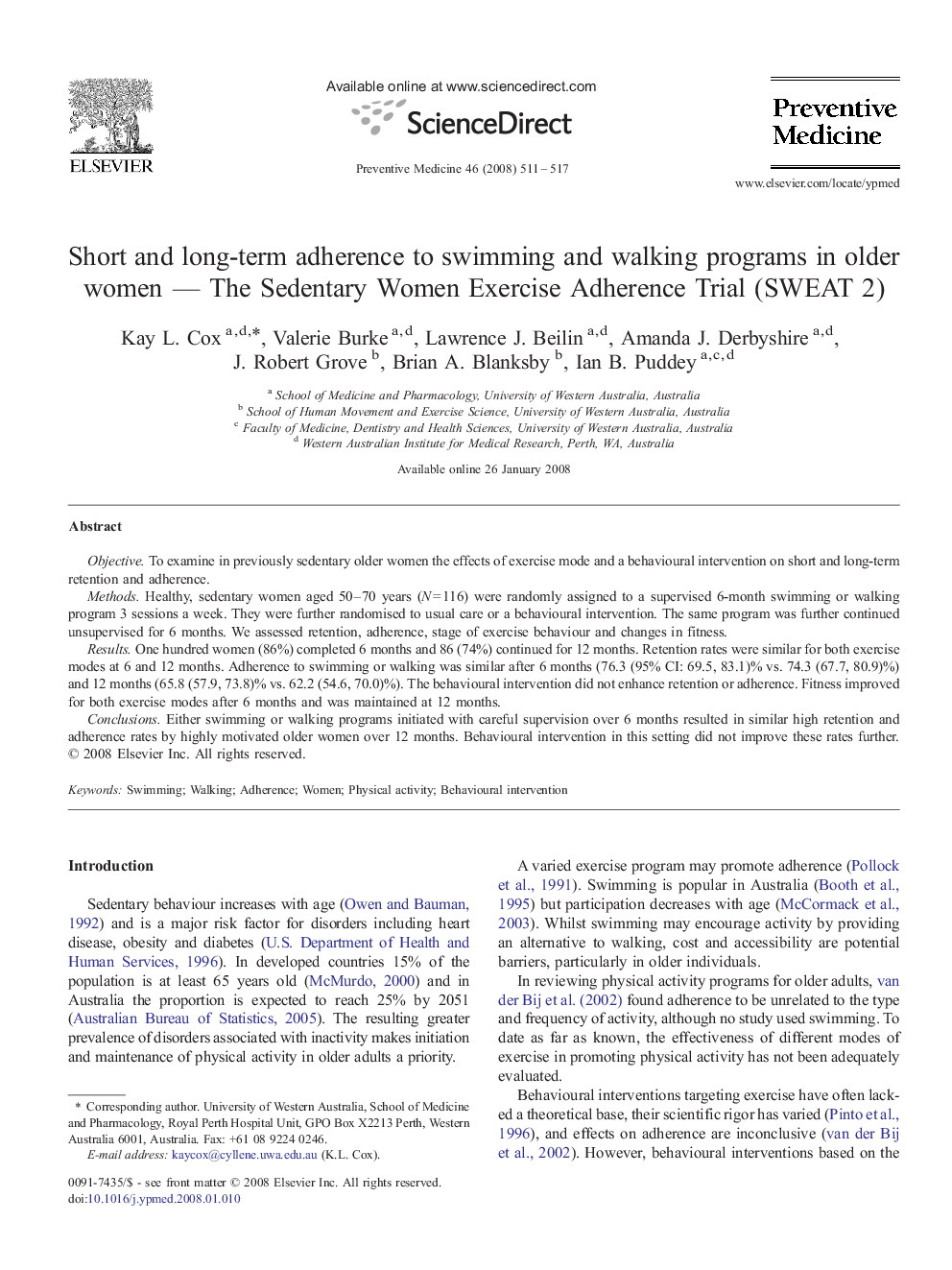| Article ID | Journal | Published Year | Pages | File Type |
|---|---|---|---|---|
| 3101800 | Preventive Medicine | 2008 | 7 Pages |
ObjectiveTo examine in previously sedentary older women the effects of exercise mode and a behavioural intervention on short and long-term retention and adherence.MethodsHealthy, sedentary women aged 50–70 years (N = 116) were randomly assigned to a supervised 6-month swimming or walking program 3 sessions a week. They were further randomised to usual care or a behavioural intervention. The same program was further continued unsupervised for 6 months. We assessed retention, adherence, stage of exercise behaviour and changes in fitness.ResultsOne hundred women (86%) completed 6 months and 86 (74%) continued for 12 months. Retention rates were similar for both exercise modes at 6 and 12 months. Adherence to swimming or walking was similar after 6 months (76.3 (95% CI: 69.5, 83.1)% vs. 74.3 (67.7, 80.9)%) and 12 months (65.8 (57.9, 73.8)% vs. 62.2 (54.6, 70.0)%). The behavioural intervention did not enhance retention or adherence. Fitness improved for both exercise modes after 6 months and was maintained at 12 months.ConclusionsEither swimming or walking programs initiated with careful supervision over 6 months resulted in similar high retention and adherence rates by highly motivated older women over 12 months. Behavioural intervention in this setting did not improve these rates further.
